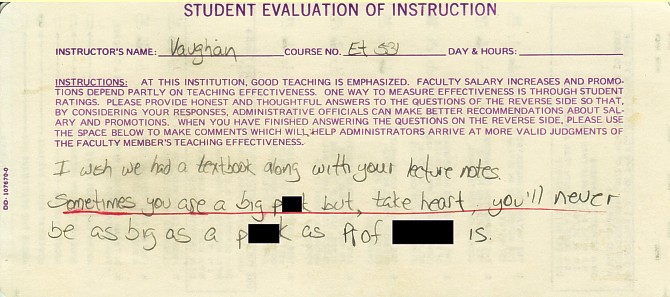Kansas Snapshots by Gloria Freeland - Jan. 31, 2014
Grading the grader
For some years, one of my January "to do" items is to submit several of last year's columns to one or two writing
contests. I'm not quite sure why I do it as I don't write them seeking approval. Still, if one of the columns
catches the judge's eye, it pleases me.
But the problem is selecting which ones to submit. I feel I am too close to them to be a good judge, so I typically
ask others to lend a hand. But at about 1,000 words per column, asking someone to "look over" a year's worth is
something like asking them to read half of a book the size of "Harry Potter and the Chamber of Secrets."
I usually have husband Art go through them first and choose his top five or ten. This year, I then asked both our
girls and a colleague to reduce that number to two or three. This process has worked pretty well in the past, but not
so this year as there was no clear-cut winners. I'd like to believe this was because they were so uniformly wonderful
that no superior ones could be chosen, but I have a hunch that isn't so.
Having someone evaluate your work can provide valuable feedback. Still, it is not always a pleasant experience. It
is also ironic that those of us who spend so much of our time grading others are so rarely graded ourselves. Art, who
taught for 20 years, has frequently said that one of the weakest aspects of our educational system is the lack of
error-correcting feedback.
It might be assumed that the quality of teaching rises as a student progresses in school. That assumption is almost
certainly false. The prospective teacher for kindergarten through 12th grade takes courses devoted to the subject he
or she wants to teach as well as classes in human psychology, lesson planning, teaching methods and a whole host of
others devoted to how to teach. But at the college level, all that is required to be made a teacher is to convince
others in the department that the candidate has sufficiently mastered the subject matter.
And once a position is secured, often there is only one crucial checkpoint several years down the road that
determines whether a person retains that teaching position. But often that evaluation is based more on research
completed, articles published or the number of research dollars brought into the institution. A thumbs down on that
lone review results in a loss of the position, while a thumbs up means a job for life.
In the 1960s, colleges began having students complete evaluation forms for their teaching assistants. Art said that
its low level of importance at the University of Wisconsin where he was teaching was indicated by the fact that it
was administered by one of the senior teaching assistants. One year, Art shared an office with two others, Ed and Tony.
Ed had been chosen to handle the evaluations. There were always more evaluation forms than students to take them on
any given day, so many forms remained blank. Knowing how nervous Tony was about the job he was doing, when the
materials were returned to Ed, he and Art wrote horrific evaluations on Tony's blank ones. Art said that when the
evaluation materials were returned the following semester, Tony went absolutely ashen.
About 1970, most colleges began having students evaluate professors as well. Suddenly the faculty began to protest,
charging students were not sufficiently mature or experienced to be effective evaluators. But since I'm not aware of
any faculty member being discharged because of poor student evaluations, those protests quickly subsided.
Still, I find those evaluations useful, despite the message frequently being confusing. I've had any number of
times when I thought a class went well, but the students felt otherwise. The reverse has happened just as often in
the same course taught the same way. Daughter Mariya, who also teaches here at the university, once had two sessions
of the same class in adjacent hours. Her ratings were mediocre in one and high in the other.
To make the generic forms used by the university more useful, I often add questions that touch on specific aspects
of my teaching methods, the course content and organization.
But despite all attempts to make them useful, sometimes the written student comments make me laugh. One from last
semester just said, "This class blows!"
OK, tell me what you really think!
(I've also been trying to figure out why "blows" is a pejorative term for this generation, but to the previous
generation, the wind had to flow in the opposite direction to have the same meaning. Maybe it is similar to why uptown
and downtown refer to the same place.)
And what do I make of the fact that for the course that "blew," another student wrote that it was one of the best
classes she had ever taken at K-State?
The last time Art taught was more than 25 years ago, but he was so amused by one of his evaluations that he has
saved it all these subsequent years. I doubt whatever columns I eventually submit, I'll receive an evaluation quite
like his. It said, "Sometimes you are a big (insert word that starts with "p" and is slang for something men have, but
women do not) ..."
It went on: "but take heart, you'll never be as big a (insert same word) as Prof (a colleague) is."
